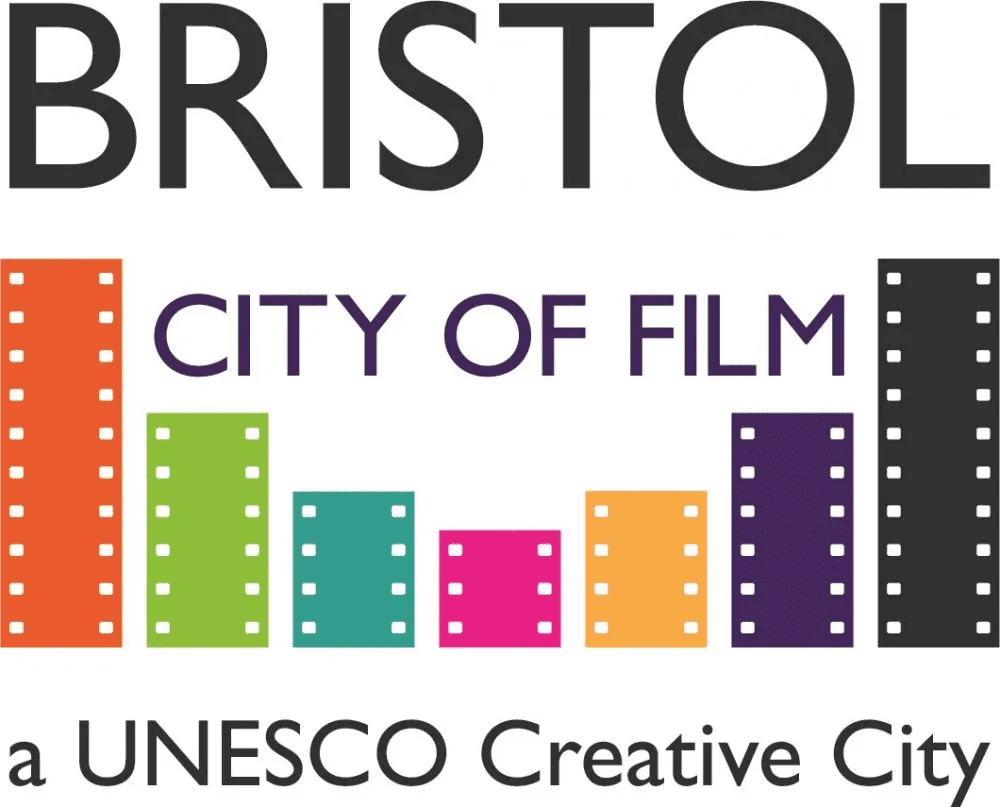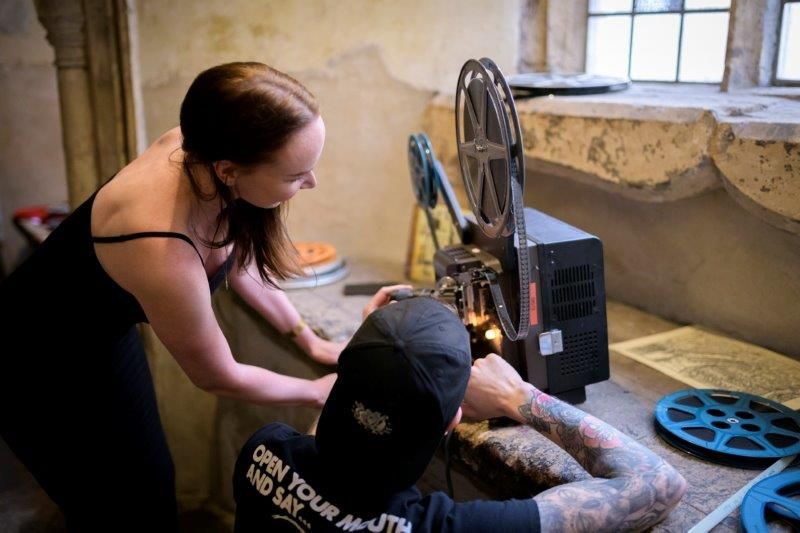Film lovers with a passion for the click, whir and chatter of a celluloid projector, joined together to enjoy a free day-long celebration of 100 Years of 16mm Film on Sunday (30th July), as part of Bristol’s Summer Film Takeover.
The unique event, delivered by Compass Presents with Cinema Rediscovered (a Watershed project), was one of nine free events running across the city centre this summer as part of Bristol’s Summer Film Takeover, presented by Bristol UNESCO City of Film and partners.
Taking place in the atmospheric surrounds of St John’s Crypt (Broad Street, Bristol BS1 2EZ) between 11am and 10pm, the day featured free workshops, screenings and live performances celebrating the centenary of 16mm, which was invented by the Eastman Kodak company in 1923.
Credit: Paul Blakemore Photography @Blikmo
Ahead of the event, Bristol UNESCO City of Film Manager Natalie Moore said: “Whether you’re an analogue enthusiast already or just interested in finding out more, 100 Years of 16mm promises to be a very special celebration of this enticing medium, which has enjoyed a resurgence recently thanks to films like Mark Jenkin’s BAFTA-winning feature Bait, produced by Bristol company Early Day Films. Stepping into the atmospheric St John’s Crypt, you’ll be transported into a world of workshops, screenings and immersive performances that celebrate the centenary of this format, which transformed the way that films were made and distributed when it was introduced in 1923.”
Mark Cosgrove Cinema Rediscovered Founder and Watershed Curator said: “100 years ago, the arrival of 16mm – cheaper than 35mm and more robust than smaller formats – opened up the world of filmmaking to a broader range of people than industry filmmakers. It provided creative freedom to experiment for filmmakers like animator Norman McLaren, who painted and scratched straight onto the film for his 1936 film Hell Unltd. Initially it was a hit with amateurs but it really came into its own in the 1960’s and 70’s with synchronized sound when it changed the landscape of independent and artists’ filmmaking. Its arrival meant that a generation of low-budget filmmakers could access the tools of filmmaking.”
Workshops in splicing, dicing and projecting 16mm films were guided by the expertise of Graham Hogg, Bristol analogue aficionado and founder of The Cube Microplex. Senior Film Lecturer John Podpadec from the University of the West of England (UWE) explored the range of 16mm cameras that changed filmmaking, including the clockwork Bolex, the Canon Scoopic, a range of Arriflex reflex cameras and the Aaton LTR54.
The day also featured three live video performances by Bristol audiovisual artist, performer and composer Surgeons Girl.
Audiences were taken on a journey through time with a reimagining of the 1936 anti-war film Hell Unltd made by animator Norman McLaren and sculptor Helen Biggar as a powerful ‘agit-prop’ piece. Made as fascism was on the rise throughout Europe, it is widely regarded as one of the striking and memorable animated political films of all time. Surgeons Girl’s fusion of ambient techno and 16mm film created a memorable and multisensory experience, described as “a mind-bending journey into a dark and twisted realm where the boundaries of reality are shattered and the depths of the human psyche are explored.”
A curated selection of classic 16mm film screenings also ran throughout the day, featuring experimental shorts encompassing narratives and mind-bendingly absurd creations, featuring renowned 16mm filmmakers such as German avant garde filmmaker Hans Richter (1888 – 1976) and female director-screenwriter Lois Weber (1879-1939), a pioneer of early Hollywood.
View the event at: compasspresents.com/100-years-of-16mm
Bristol’s Summer Film Takeover was delivered as one of the activities under the City Centre and High Streets Recovery and Renewal programme, funded by Bristol City Council and the West of England Combined Authority’s Love our High Streets project.

